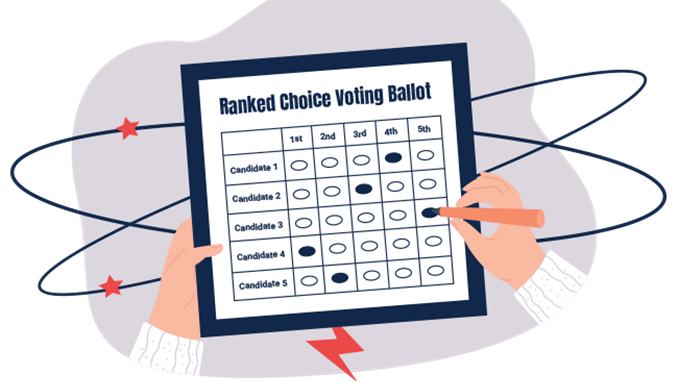Business
Ranked-Choice Voting: A Recipe for Ineffective Leadership?

By Harry Roth |
In a significant political shift, Oakland, California residents voted on November 5 to recall Mayor Sheng Thao, marking the first successful mayoral recall in the city’s history. The decision, which saw 61.6% of voters in favor of removal, reflects widespread discontent about rising crime rates and perceived mismanagement under her leadership. Thao, who won the mayoral race two years ago through ranked-choice voting, has faced mounting criticism during her tenure.
The recall vote serves as a broader critique of both Thao’s performance and the ranked-choice voting (RCV) system itself. This controversial voting method allows candidates to win based on second or subsequent-choice votes, which critics argue distorts electoral outcomes. Thao’s narrow victory in 2022 exemplified this issue; she secured her position after receiving fewer first-place votes than her opponent, Loren Taylor, who led in that category but ultimately finished with under 50% support.
In his concession speech, Taylor addressed the flaws in the ranked-choice system, highlighting the significant number of discarded ballots that contradict RCV proponents’ earlier promises. This complexity, he suggested, alienates voters and complicates the electoral process.
Since Thao took office, Oakland has seen a worrying surge in violent crime, with violent incidents rising by 21% year-over-year and robberies increasing by 38%. Critics contend that instead of implementing effective crime reduction strategies, the mayor opted for “ceasefires” and presented misleading crime statistics to distract from her administration’s shortcomings.
Ranked-choice voting has drawn criticism from observers who argue that it undermines democratic principles. The system, which can lead to winners with less than majority support, has prompted calls for its repeal in Oakland. Before RCV was introduced, the city experienced effective leadership, exemplified by former mayor and California Governor Jerry Brown, who actively opposed the implementation of RCV.
Thao’s challenges were exacerbated by a high-profile FBI raid at her residence last June, which raised questions about her governance. The subsequent recall effort, dubbed “Oakland United to recall Thao,” garnered over 40,000 signatures and received backing from various stakeholders, including the Oakland Police Officers’ Association and influential local business leaders, even drawing attention from figures like Elon Musk.
While proponents argue that ranked-choice voting is designed to promote moderate candidates, the system has led to the election of leaders like Thao, whose popularity has plummeted. As discussions unfold about potentially repealing the RCV system, residents are left contemplating the future of Oakland’s political landscape and the efficacy of their electoral mechanisms.
Originally published by the Daily Caller News Foundation.
Harry Roth is a contributor to The Daily Caller News Foundation and the director of outreach at Save Our States, where he manages the Stop RCV Coalition.


















